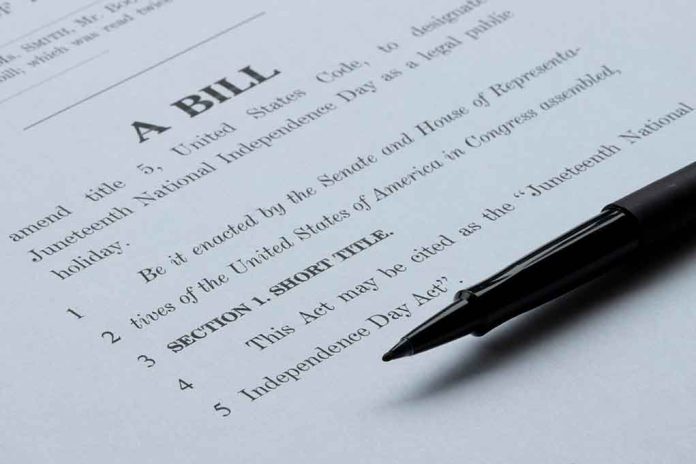
House Republicans have introduced legislation that would eliminate the IRS Direct File program within 30 days of enactment, replacing it with a public-private partnership aimed at offering free tax filing for most Americans.
Key Takeaways
- The GOP budget reconciliation bill would terminate the IRS Direct File program and establish a public-private partnership with tax preparation companies
- The proposal allocates up to $15 million for a Treasury report on creating a service allowing 70% of Americans to file taxes for free
- President Trump has urged lawmakers to pass legislation offsetting $4.5 trillion in tax cuts
- Democratic lawmakers oppose eliminating Direct File, arguing it benefits everyday Americans
- Treasury Secretary Scott Bessent has committed to maintaining Direct File for the current tax season
Republican Bill Takes Aim at IRS Direct File
A new budget reconciliation bill under consideration in the House of Representatives includes provisions that would eliminate the IRS Direct File program, a free tax filing system that has expanded to cover approximately half the country in 2025. The bill, which aligns with President Trump’s fiscal priorities, would terminate the program within 30 days of the bill becoming law and redirect efforts toward a collaborative approach with private tax preparation companies.
The legislation represents a significant shift in how Americans might file their taxes in the future. Direct File began as a pilot program in 2024, initially available in 12 states where it processed 140,803 tax returns. The IRS announced in May 2024 that the program would become permanent, but the Republican-led initiative now threatens its existence as part of broader fiscal reform efforts supported by the Trump administration.
An under the radar part of Republicans' tax plan: they're going to end the incredibly popular free direct tax filing service. Trump will force you to fork out hundreds of dollars each year to TurboTax so he can give tax breaks to billionaires. https://t.co/bzxU1BJYEn
— Ron Wyden (@RonWyden) May 14, 2025
Public-Private Partnership Proposed as Alternative
Instead of the government-run Direct File system, the GOP bill proposes creating a task force to establish a public-private collaboration between the Treasury Department and private tax preparation services like TurboTax and H&R Block. This partnership would be designed to provide free tax filing options to approximately 70% of U.S. taxpayers, potentially expanding access beyond what Direct File currently offers while leveraging existing private sector expertise.
“I will commit that for this tax season that Direct File will be operative and the American taxpayers who choose to use it will,” said Bessent.
The legislation authorizes up to $15 million for the Treasury Department to conduct a comprehensive analysis of the costs and implementation requirements for replacing Direct File. This study would evaluate how to transition to a system where the vast majority of Americans could file their tax returns at no cost through private providers, while ensuring security and efficiency standards are maintained throughout the process.
Political Divide Over Tax Filing Future
The bill has drawn sharp criticism from Democratic lawmakers who argue that eliminating Direct File would harm everyday Americans who have come to rely on the free government service. Democrats have been vocal supporters of expanding government-provided tax filing options, seeing them as a way to simplify the tax process and reduce costs for ordinary citizens. Meanwhile, President Trump has characterized the broader reconciliation bill as a “big, beautiful bill” necessary to offset his administration’s $4.5 trillion tax cut plan.
Adding another layer to the discussion, Trump adviser Elon Musk has mentioned plans to terminate 18F, the technology agency involved in developing Direct File and other government tech programs. This signals a broader administration strategy to reduce government involvement in services that could be provided by private industry. Treasury Secretary Scott Bessent has assured taxpayers that Direct File will remain available for the current tax season, though its long-term fate remains uncertain pending Congressional action.














